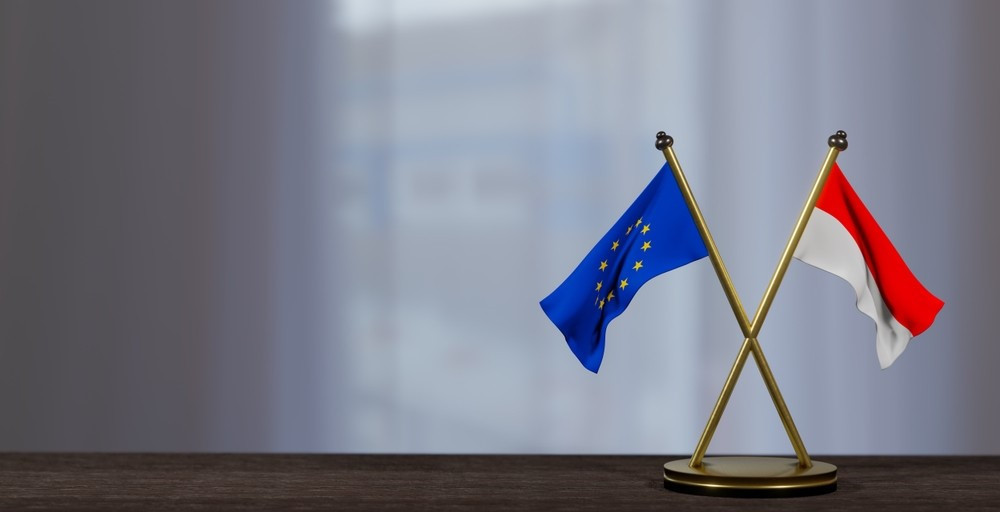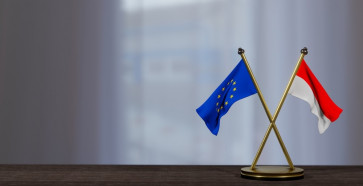Popular Reads
Top Results
Can't find what you're looking for?
View all search resultsPopular Reads
Top Results
Can't find what you're looking for?
View all search resultsAnalysis: Amid Trump tariffs, Indonesia, EU settle differences to boost trade
Change text size
Gift Premium Articles
to Anyone
T
he resurgence of global trade uncertainty under United States President Donald Trump’s second term has prompted Indonesia and the European Union to resolve long-standing disputes and accelerate the conclusion of negotiations on the Indonesia-EU Comprehensive Economic Partnership Agreement (IEU-CEPA), aiming to finalize the deal by September. However, significant hurdles remain, particularly Indonesia’s compliance with the EU’s anti-deforestation regulations.
During a recent visit to Brussels, President Prabowo Subianto and European Commission President Ursula von der Leyen signed a political agreement to wrap up the decade-long IEU-CEPA talks, now entering their final phase. Many analysts view the signing as a direct response to the growing uncertainty in global trade sparked by the return of Trump-era tariffs.
Prabowo also secured a separate trade deal with Trump, reducing US tariffs on Indonesian goods from 32 percent to 19 percent, albeit after making substantial concessions. In contrast, Von der Leyen is still negotiating with Washington, with no breakthrough yet.
Prabowo’s leadership in pushing the 19 rounds of IEU-CEPA negotiations, launched in 2016, toward completion has been widely praised. The most contentious issues have been the EU’s restrictions on Indonesian palm oil and Indonesia’s ban on nickel ore exports. Both have been escalated to the World Trade Organization, but it is still unclear which side is conceding more ground.
Encouragingly, the IEU-CEPA will eliminate tariffs on up to 80 percent of Indonesian exports to the EU, including palm oil. Yet, the biggest challenge will be navigating non-tariff barriers such as the EU Deforestation Regulation (EUDR), which remains in place. Indonesian Palm Oil Producers Association (GAPKI) chairman Eddy Martono warned that despite tariff relief under the IEU-CEPA, the EUDR poses a serious hurdle for palm oil entering the European market.
Under the EUDR, Indonesia is classified as a “standard-risk” country for deforestation, alongside fellow palm oil giant Malaysia. This designation requires Indonesian palm oil exports to undergo strict sustainability and traceability checks that could disproportionately impact independent smallholder farmers. As a result, Indonesia must strengthen its compliance mechanisms if it wants to continue accessing the EU market. While challenging, this also presents an opportunity to innovate and lead in sustainable agribusiness.
Palm oil remains a cornerstone of Indonesia’s export economy, generating US$27.8 billion in export revenue last year, down slightly from $30.3 billion the year prior. Once a major buyer, the EU has become a less significant destination due to growing regulatory barriers, prompting Indonesia to shift more of its palm oil exports to Asian markets, particularly China and India.



















